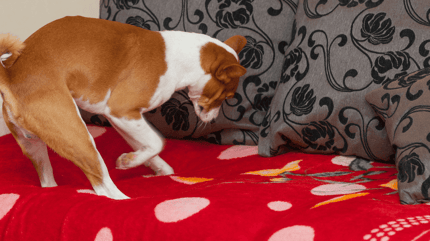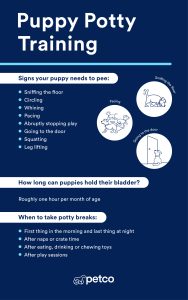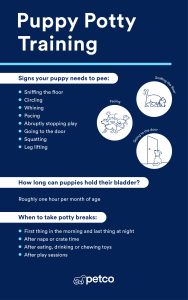Have you ever watched your dog scratch at his bed and wondered why he does it? It might seem like a simple habit, but there’s more going on beneath the surface.
Understanding why your furry friend scratches his bed can help you keep him comfortable and happy. You’ll discover the surprising reasons behind this common behavior and learn how you can make your dog’s resting spot the perfect place to relax.
Keep reading—you’ll want to know what’s really driving your dog to scratch at his bed.
Common Causes Of Bed Scratching
Dogs often scratch their beds for several natural reasons. This behavior may seem odd but serves important purposes. Understanding these causes helps you respond to your dog’s needs better.
Instinctual Nesting Behavior
Dogs come from wild ancestors who scratched the ground to make a safe spot. This nesting habit helps them create a comfortable and secure resting place. The scratching softens the area and moves objects away.
Even domestic dogs keep this habit. Scratching their bed helps them feel calm and prepared to rest.
Seeking Comfort And Security
Scratching can make the bed softer and warmer. Dogs use this action to adjust their space to feel cozy. It is a way to settle in and feel safe.
When a dog scratches at the bed, it may be trying to find the best position. This shows they want to relax and sleep well.
Marking Territory
Dogs have scent glands in their paws. Scratching deposits their scent on the bed. This marks the bed as their personal space.
This behavior helps dogs feel confident and secure. It signals to other animals that this spot belongs to them.

Credit: bullybeds.com
Health-related Reasons
When your dog scratches at his bed, it might not just be a quirky habit or a way to make a comfy spot. Health-related reasons often play a big role. Understanding these can help you spot issues early and keep your furry friend comfortable and happy.
Allergies And Skin Irritations
Dogs can develop allergies just like people. These might come from food, pollen, dust, or even the material of their bed. Scratching at the bed could be your dog’s way of trying to relieve itchy, irritated skin.
If you notice redness, hair loss, or constant scratching, check for allergens in your dog’s environment. Switching to hypoallergenic bedding or washing the bed frequently might help. Have you considered if something new in your home could be triggering your dog’s allergies?
Parasites And Fleas
Parasites like fleas or mites are common causes of itching. Even if you don’t see fleas right away, your dog might feel their presence and try to scratch or dig at the bed to escape the discomfort.
Regular flea prevention is key. Look closely for small black specks or flea dirt on your dog’s coat and bedding. Could your dog’s scratching be a sign to recheck their parasite control routine?
Joint Pain Or Discomfort
Believe it or not, your dog might scratch or paw at their bed because of joint pain or discomfort. Older dogs or those with arthritis often try to adjust their position to find relief.
Observe if your dog seems stiff, slow to get up, or reluctant to move. Offering orthopedic beds or extra padding can make a big difference. Have you noticed your dog’s scratching increases after physical activity or rest?
Environmental Factors
Environmental factors play a big role in why dogs scratch their beds. Dogs react to their surroundings naturally. These reactions include scratching to make their space comfortable or safe. Understanding these factors helps in managing your dog’s behavior better.
Temperature And Bedding Texture
Dogs often scratch their beds to adjust temperature. Scratching can spread out bedding to cool down or fluff it to stay warm. The texture of the bedding also matters. Some dogs prefer softer surfaces and scratch to create a softer spot. Rough or unfamiliar textures may cause more scratching as dogs try to make the bed cozy.
Noise And External Disturbances
Noise around the dog’s resting area can trigger scratching. Dogs may scratch to alert themselves or others of sounds. External disturbances like passing animals or people can also cause scratching. This behavior helps dogs feel more secure and in control of their space.

Credit: www.lordsandlabradors.co.uk
Behavioral Causes
Dogs often scratch at their beds due to behavioral reasons. Understanding these behaviors can help you address the issue effectively and improve your dog’s comfort. Let’s look deeper into two common behavioral causes: anxiety and stress, as well as boredom and excess energy.
Anxiety And Stress
Does your dog scratch at his bed right after you leave the house or during loud noises? This could be a sign of anxiety or stress. Dogs use scratching as a way to self-soothe and create a safe space.
Your dog might be trying to rearrange the bed to feel more secure or to mask scents that cause discomfort. If your dog’s scratching increases during thunderstorms or when guests arrive, anxiety is likely the trigger. Consider calming techniques like soothing music, pheromone sprays, or extra attention before stressful events.
Boredom And Excess Energy
Sometimes, scratching is simply a release of pent-up energy. If your dog isn’t getting enough physical or mental stimulation, he might start scratching to entertain himself or burn off energy.
Think about your dog’s daily routine. Does he have enough playtime, walks, or interactive toys? Adding more exercise or puzzle toys can reduce this restless behavior and help your dog relax better at bedtime.
How To Respond To Bed Scratching
Seeing your dog scratch at his bed can be puzzling and sometimes frustrating. How you respond can make a big difference in your dog’s comfort and happiness. Let’s look at practical ways you can address this behavior and ensure your furry friend feels safe and content.
Checking For Health Issues
First, rule out any health problems that might cause your dog to scratch. Skin irritations, allergies, fleas, or infections can make your dog uncomfortable and prompt scratching. If you notice redness, hair loss, or sores, consult your vet immediately.
Even subtle signs like frequent licking or restlessness might signal discomfort. Sometimes, bed scratching is a way to ease itchy skin. A quick check-up can save your dog from prolonged irritation and keep you both worry-free.
Improving Bed Comfort
Your dog’s bed might not be as cozy as you think. Is the bed too small, too firm, or made of materials that irritate your dog’s skin? Consider swapping it out for a softer, larger, or washable option.
Adding a familiar blanket or one of your old shirts can provide comfort and reduce anxiety. Dogs often scratch to “nest” or arrange their sleeping spot. By improving bed comfort, you might reduce this instinctive behavior.
Providing Mental And Physical Stimulation
Sometimes, scratching at the bed is a sign of boredom or excess energy. Ask yourself: Is your dog getting enough playtime and mental challenges during the day? Increasing walks, play sessions, or puzzle toys can help.
Engaging your dog’s mind and body tires them out and lowers the urge to scratch restlessly. Try rotating toys or teaching new tricks to keep your dog interested and satisfied. When your dog feels fulfilled, bed scratching often decreases on its own.

Credit: www.beanbagsrus.com.au
Frequently Asked Questions
Why Does My Dog Dig In His Bed?
Dogs dig in their beds to create a comfortable and secure space. This behavior is instinctual, mimicking their ancestors’ actions to make sleeping areas safe. Digging can also help regulate their body temperature. Ensure your dog’s bed is comfy and in a quiet spot to minimize this behavior.
Is Scratching Normal For Dogs Before Sleeping?
Yes, scratching is normal and often seen as a nesting behavior. Dogs scratch to arrange their bedding, making it comfortable. This behavior is inherited from their wild ancestors. If your dog scratches excessively, check for allergies or skin issues, which may require veterinary attention.
How Can I Stop My Dog From Scratching His Bed?
Provide a comfortable and appropriate bed for your dog. Consider softer bedding materials that your dog prefers. Ensure the bed is large enough for your dog to stretch out. If your dog continues to scratch excessively, consult a veterinarian to rule out any medical concerns.
Could My Dog’s Scratching Indicate A Problem?
Excessive scratching might indicate allergies, parasites, or skin conditions. Observe if your dog scratches at other times or shows discomfort. If scratching persists, it’s crucial to consult a veterinarian. They can identify any underlying issues and recommend appropriate treatments or solutions.
Conclusion
Dogs scratch their beds to feel comfortable and safe. It helps them make the spot just right. Sometimes, they do it to cool down or clean their paws. Watch your dog’s behavior and check for any skin problems. Giving your dog a cozy, clean bed makes a big difference.
Understanding this habit shows how dogs think and feel. Paying attention helps your dog stay happy and healthy. Keep your pet’s comfort a top priority every day.

Emily Barker is the founder of ChillDogLife.com, a space dedicated to helping pup parents discover the best dog products, lifestyle tips, and cozy ideas for happier homes.
A lifelong dog lover, Emily combines her passion for pets with a knack for research to share trusted recommendations on everything from toys and furniture to health and everyday care.
Her goal is simple: to make life easier, stylish, and more joyful for dogs and the people who love them.







